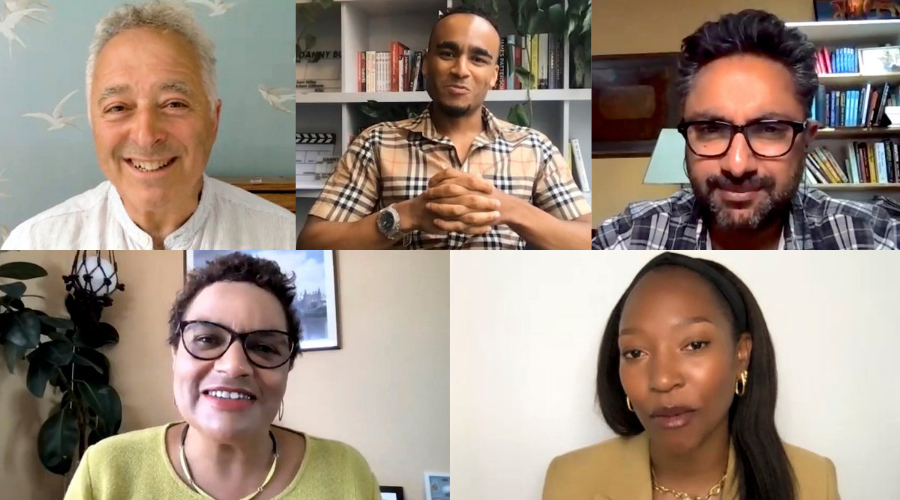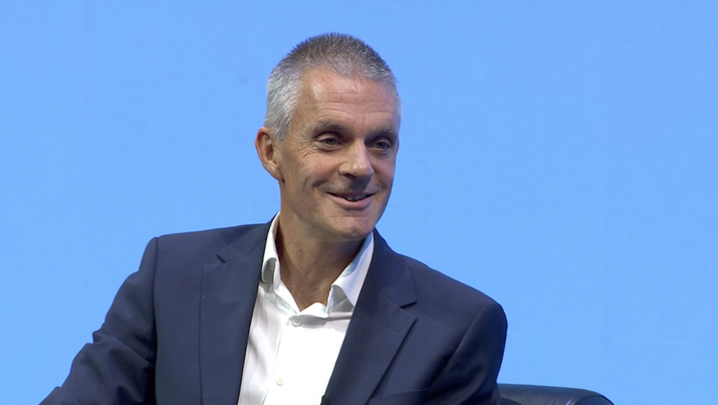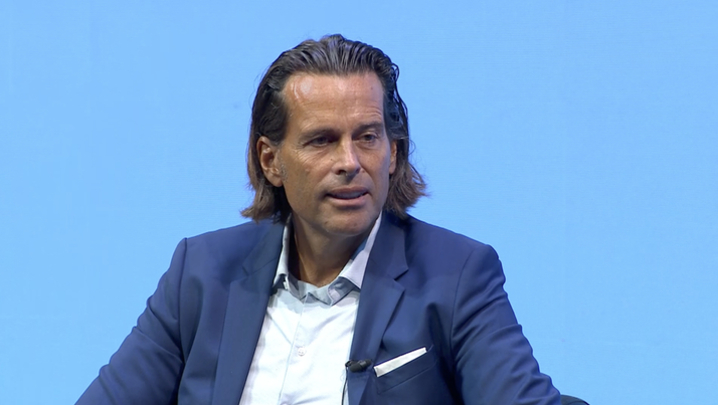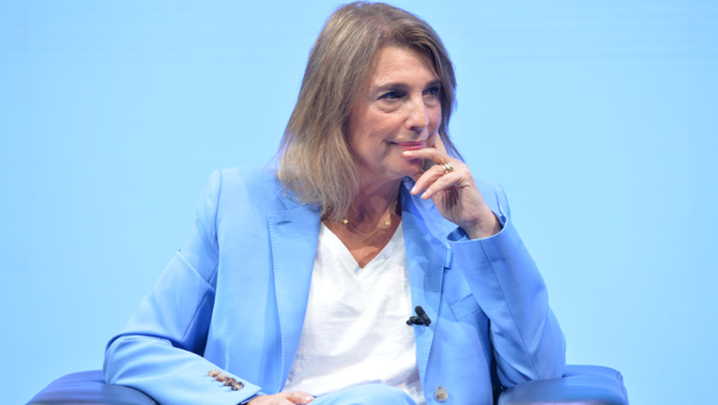Five creatives offer reflections on what Britishness means for them and their work.
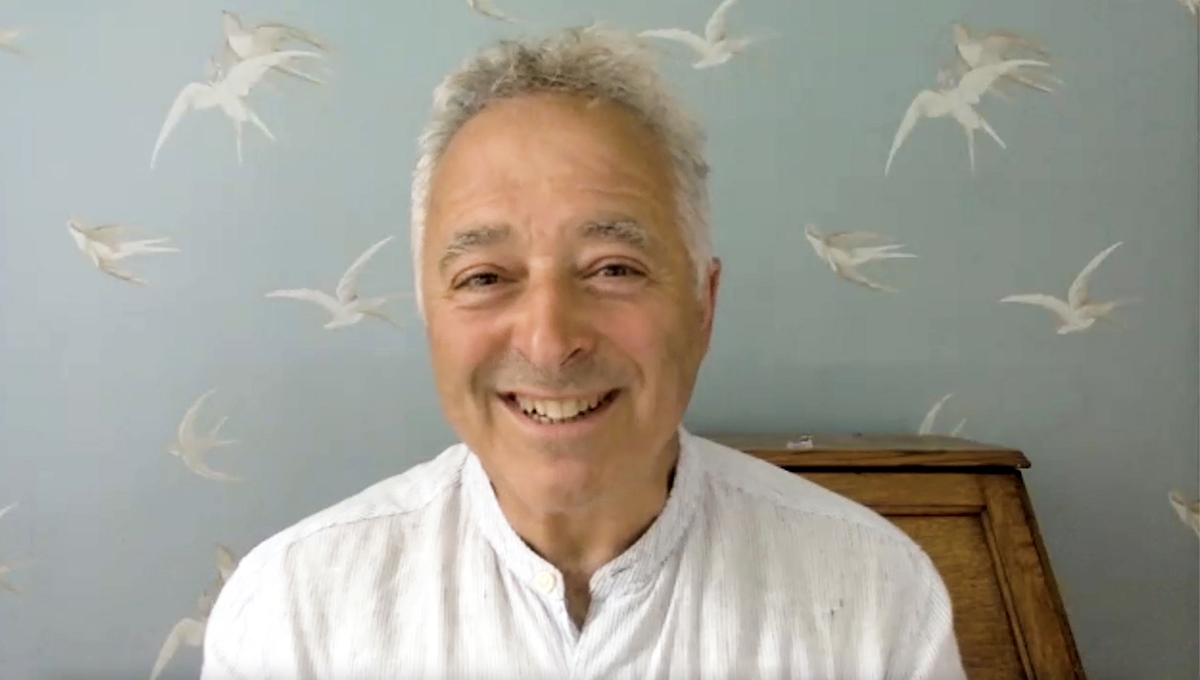
Frank Cottrell-Boyce
Screenwriter and children’s author
“I [only] think a lot about Britishness when I’m working as a screenwriter.
“Film has to work globally. When you are working for a studio, you run across a set of values that are supposed to be universal, but which Britain is often to one side of – in a good way, a way that I like.
“The film philosophy is about affirmation, simplicity, hugging, learning, about a journey.
“I think it is quite possible to write a British film in which no one takes a journey, no one learns anything and no one hugs anyone. There is something good about that ability to abide with contradiction.
“In other countries where I have lived, people tend to celebrate victories and moments of greatness, whereas one thing that makes me hopeful about Britain is that, traditionally, we have often celebrated defeats. We know a lot more about Dunkirk than, say, Plassey.
“That ability to be ambivalent is where my hope lies: that is where we can learn to curate our troubled past, live with it and move forward.
“What worries me about Britain is that the opposite seems to be happening a lot of the time… the Second World War is changing its definition and becoming some sort of weird origin myth, and we have forgotten the complications and the troubles of that period.
“Well, I hope we haven’t forgotten. As a writer, your job is to remind people of what has been forgotten and to tell other stories, particularly stories that contain contradictions.
“There is a wonderful phrase in The Whitsun Weddings by Philip Larkin that gives a beautiful definition of nationhood – a “frail travelling coincidence” – that, I think, describes the best a nation can be. Past and present, posh and poor, all our different communities are contained in this moment. That is something to be joyful about.”
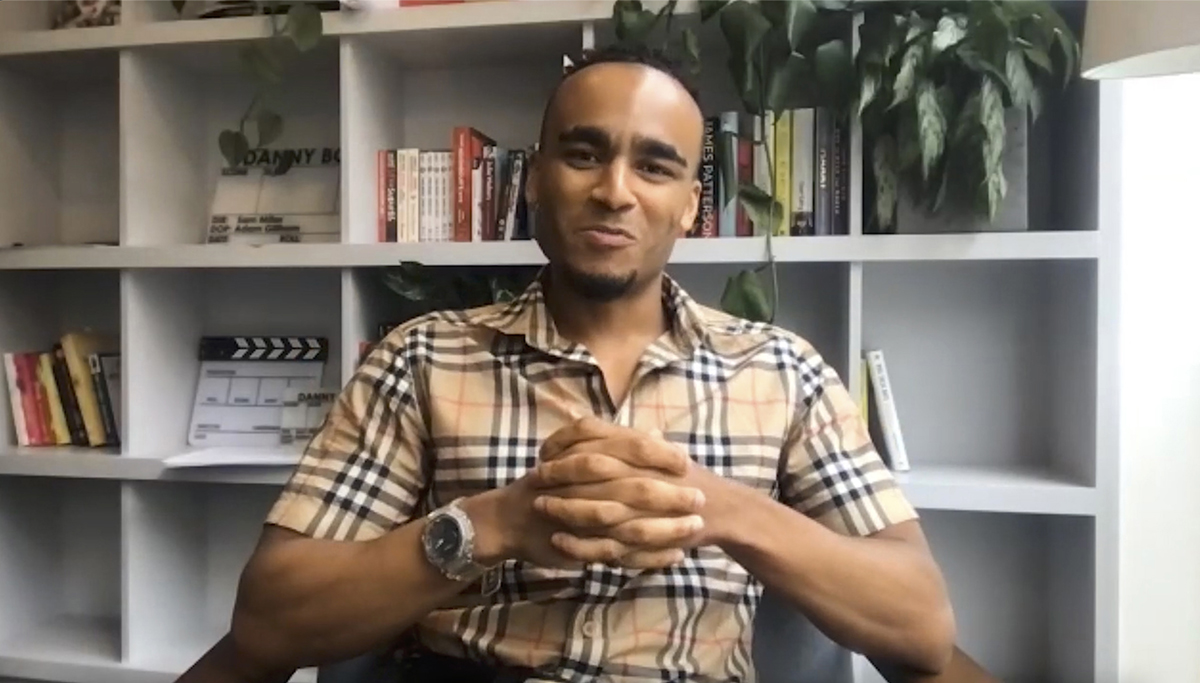
Munya Chawawa
Comedian, satirist and creator
“Britain is so fascinating. There are some real strong points to being British: we can boast the likes of David Attenborough, Postman Pat and Peppa Pig – all global icons.
“There is a very meticulously crafted image, where we are very prim and proper. I find British awkwardness very funny, especially abroad.
“As a satirist, my job is to analyse the more contentious aspects of society, some of its darker side, the things that are less desirable, that we are not so proud of, and to dissect those.
“Especially in the light of the Euros finals, Brexit, the constant back and forth to do with immigration from certain politicians… we need to expand our definition of what being British means. I was born in Derby but to a lot of people I would not be British – I get the, ‘But where are you really from? Which bit of Africa?’.
“We need to expand our definition to include people from all over who are quintessentially British.
“At the end of the Euros, we had this idea that ‘if you get it wrong, you were never really British anyway’.
“And if you do get it right, ‘Of course you should be getting it right, because you are a cog in the machine and you’ve got to earn your place here’. That is unfair. For many people, to be British you [still] need to be white.
“I can walk out on the street and see a variety of colours and creeds and know that we are all 100% comfortable and at home in Britain, and can say we are British and leave a pause and, if no one chimes in with, ‘Yeah, but where are you really from?’, that is the moment when I will take full pride in saying, ‘I am British’.
“But at the moment, we are not quite there.”
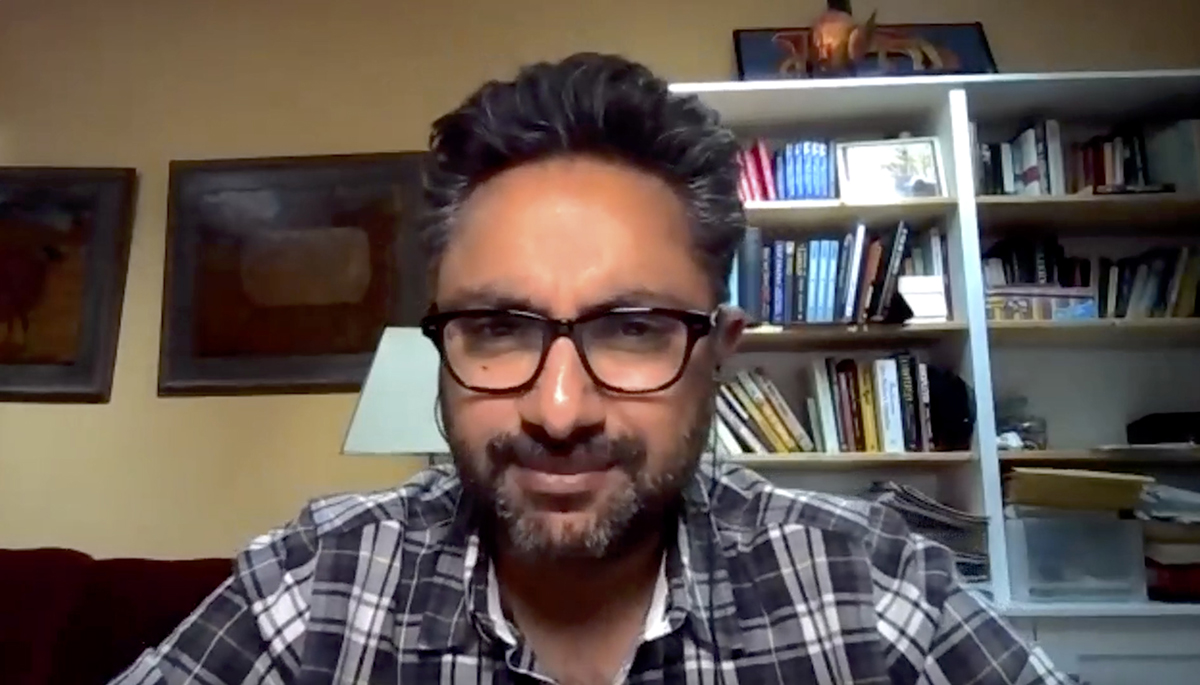
Sathnam Sanghera
Journalist and author
“Apologising when someone stamps on your foot – that epitomises what it means to be British. It’s an obsession with the crap weather; it’s moaning about that crap weather; it’s ending emails with, ‘No worries if not’; it’s Jeremy Clarkson; it’s Lenny Henry; it’s the BBC; it’s about electing politicians who went to Eton and Oxbridge.
“Another defining feature, for me, is that it is multicultural – there have been brown people in Britain going back centuries: Queen Elizabeth I complained that there were too many black people in London [in 1601].
“I think we need to own this racial diversity because, fundamentally, we had a racially diverse, multicultural empire. Which is why we have a racially diverse, multicultural society today.
“Another defining thing about British people is the way we travel, which goes back to our history. Two things you can guarantee, going anywhere on planet Earth: you will meet a Sikh taxi driver and a British ex-pat (not an immigrant, mind, an ex-pat).
“During the empire, we could impose the way we travelled on other peoples. We, generally, still do not learn their languages, we expect them to learn English; nor, generally, do we eat their food, we expect to eat British food.
“When I travel as a British person, I say I miss The Archers (though it is easy enough to listen to it). What I really miss is moaning about missing The Archers with other people, I miss people knowing where Wolverhampton is, and I miss British Asian people complaining about the weather even more than white British people – like my mother. That is a sign of true integration.”
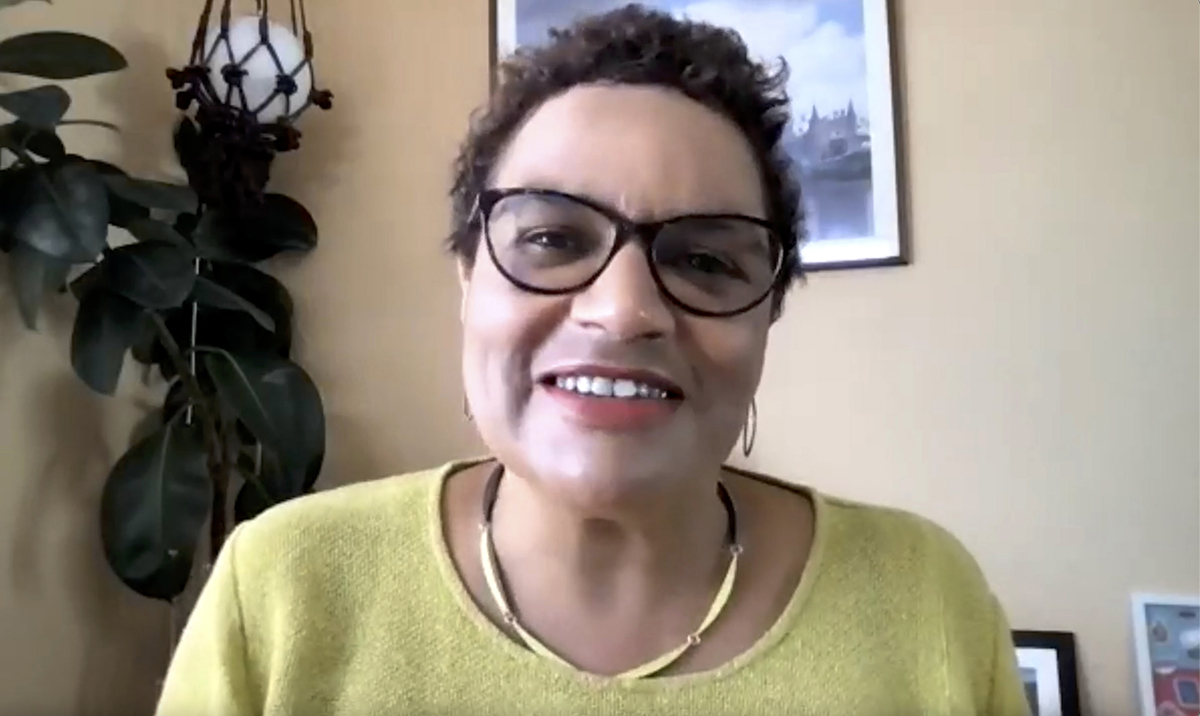
Jackie Kay
Poet, playwright and novelist
“I have always found the term Britishness a bit problematic. For some reason, the term Britishness becomes synonymous with Englishness.
“It is an unhappy equation: it is less than the sum of its parts. Yet the parts of Britain, or Britishness, that you’d like to celebrate are more than the sum of our parts: they are all sorts of wonderful things like the NHS, fighting against racism, having a sense of human rights and personal dignity.
“I’d struggle to find a Scottish person who would say, ‘I’m British’, in the same way as they say, ‘I’m Scottish’. I always think of Scotland as a wee country that looks out to the world, that is able to be internationalist at the same time as having a sense of its own national identity… it is a country that still sees itself as European. It is open-armed, it is inclusive, it is many voices, many dialects and many languages.
“We want to embrace the idea of Britain, of being brilliant, of Team GB, and of being fair and [having] a great sense of solidarity and camaraderie. Yet, at the moment, we have a Britain that is very divided – divided in opinion, in wealth, in politics.
“It is a Britain that is fractured and that many people in Scotland want to leave.”
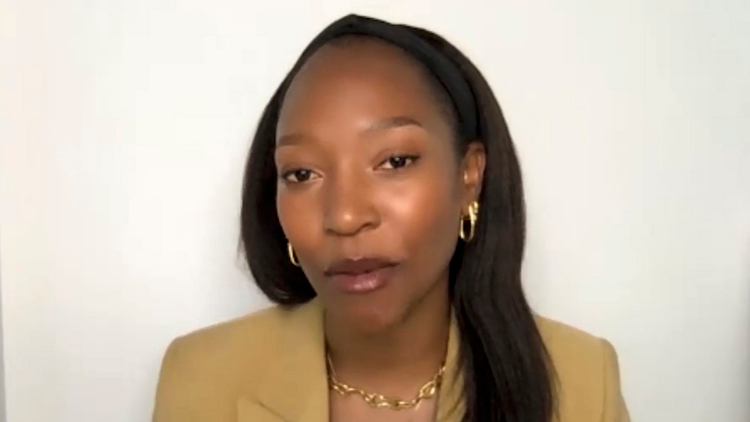
Vanessa Kingori
Publishing director, British Vogue
“The best of Britishness, to me, is about a wicked sense of humour. Our sense of humour is, arguably, the best in the world, as is our use of sarcasm. It is why we have brilliant advertising campaigns created here.
“It is a lot to do with bonding through complaining, especially about the weather. If someone asks how you are, you never really say how you are, but you also don’t reply in too jolly a way – you say things like, ‘Can’t complain’ or ‘Apart from my leg…’.
“There is something self-deprecating about British humour and the British sensibility. It is about a debilitating type of politeness – I’ve seen Brits form a queue in other countries where there was never a chance of it working.
“In media and publishing, Britain has quite a long way to go in terms of inclusivity. I think we have made great strides in the past few years, especially the last four years or so. I’m proud to have been a part of that. And that has had a snowball effect and been aligned to some other changes going on elsewhere.
“But we have a long way to go to really have true inclusion and move away from tokenism. That is, tokenism on the screen, on covers, in magazines, in hires – having that one person from the LGBT+ community or that one black or brown or disabled person is not what true inclusion is about.
“When we start to see people from marginalised groups in leadership roles alongside their more traditional peers, that is when we will know that we have really changed things.
“It is really about leadership, not the tokenistic hires – that is the big frontier.”

